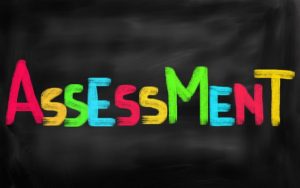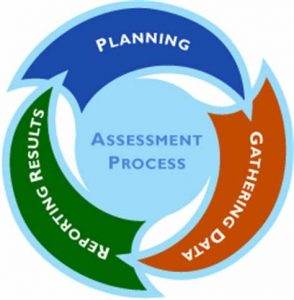
Understanding assessment is an ongoing component of the dynamic and interactive social work practice process with and on behalf of diverse individuals, families, groups, organizations, and communities. Understanding human behavior and the social environment and critically evaluating and applying that knowledge is important in assessing diverse clients and constituencies, including individuals, families, groups, organizations, and communities. I can understand and learn more about the assessment methods with diverse clients and constituencies to advance practice effectiveness. I will recognize the implications of the larger practice context in the assessment process and value the importance of interprofessional collaboration in this process. I understand that my personal experiences and affective reactions may affect the assessment and decision-making process. I will collect and organize data and apply critical thinking to interpret information from clients and constituencies. I will develop mutually agreed-on intervention goals and objectives based on the critical assessment of strengths, needs, and challenges within clients and constituencies. I will select the appropriate intervention strategies based on the assessment, research knowledge, values, and preferences of clients and constituencies.
Evidence
7A – Formulate comprehensive assessments, using a variety of diagnostic classification systems
Course Evidence: I took Psychopathology at Barry University. This was an in-depth DSM-5 course that went over the diagnostic criteria related to mental illnesses. During the course, I had to conduct a Mental Status Examination of a client I worked with during field practice. In this assessment, I provide background information about the client, their presenting problem, their mental status, information regarding their interpersonal functioning, discuss the client’s interest in leisure and strengths, then formulate a clinical impression of my recommendations.
Field Evidence: During field practice, part of my responsibilities was to complete intake assessments, American Society of Addiction Medication (ASAM) recommended levels of care, Daily Living Activities -20 (DLA-20) assessment, (Strengths, Needs, Abilities, and Preferences) SNAP documentation, treatment plan formulation, and therapy progress notes which tracked progress based on goals set in the treatment plans. Please see documented journal entries of Formulation of Assessments.
7B – Design and implement organizational and/or community assessments.
Course Evidence: During Advanced Administrative Practice 1, our group has to conduct a needs assessment. As part of the needs assessment process, we designed and implemented a Survey that utilizes scaling questions and open-ended questions using quantitative and qualitative methods to measure data. The surveys being implemented will be given to constituents who are parents of children with mental illness served at the McNabb Center.
Field Evidence: I designed and implemented a pre and post assessment within the Lighthouse Peer Support Center during field practice at the Helen Ross McNabb Center. The Pre-Assessment was conducted to understand overall satisfaction with activities participants were participating in before implementing the curriculum I created for my Special Project. The Post-Assessment was conducted to measure the effectiveness of the curriculum I designed and implemented within the agency.
